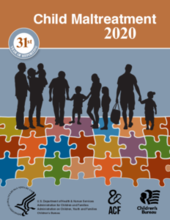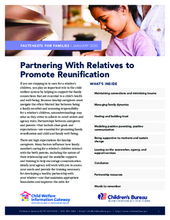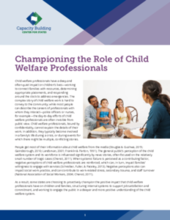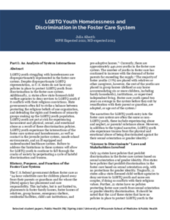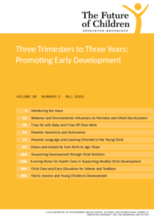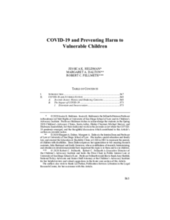This page contains documents and other resources related to children's care in the Americas. Browse resources by region, country, or category.
Displaying 1081 - 1090 of 3191
In this paper, the authors report the results of a study examining parenting challenges among a sample of African immigrant parents in Alberta, Canada.
In this segment from NPR, Efrén Olivares of the Texas Civil Rights Project discusses the lasting impacts of family separation on children and parents who have since been reunified.
Child Maltreatment 2020 is the latest edition of the annual Child Maltreatment report series. States provide the data for this report via the National Child Abuse and Neglect Data System (NCANDS). NCANDS was established as a voluntary, national data collection and analysis program to make available state child abuse and neglect information. Data have been collected every year since 1991 and are collected from child welfare agencies in the 50 states, the Commonwealth of Puerto Rico, and the District of Columbia.
Child Maltreatment 2020 is the latest edition of the annual Child Maltreatment report series. States provide the data for this report via the National Child Abuse and Neglect Data System (NCANDS). NCANDS was established as a voluntary, national data collection and analysis program to make available state child abuse and neglect information. Data have been collected every year since 1991 and are collected from child welfare agencies in the 50 states, the Commonwealth of Puerto Rico, and the District of Columbia.
This factsheet shares the experiences and advice of families who have had relatives in
kinship care arrangements to highlight the dynamics and steps that can support reunification.
Child welfare professionals have a deep and often quiet impact on children’s lives—working to connect families with resources, determining appropriate placements, and responding around the clock to address emergencies.
This analysis of system dysfunction in the U.S. involving legislative powers, child welfare agencies, and peripheral systems, such as juvenile justice, schools, and healthcare, reveals a distinct misalignment in shared values.
This issue of the Future of Children focuses on the first years of life starting with in utero experiences.
This exploratory research led by Kindernothilfe between May – July 2020 shows how the challenges facing working children and their families have been exacerbated since the outbreak and it presents their recommendations for effective and relevant responses to the pandemic.
This article explores the current state of child rights within the U.S. child welfare, juvenile justice, and special education systems, highlighting concerns that pre-date COVID-19 as well as recent legal implications of the pandemic.


